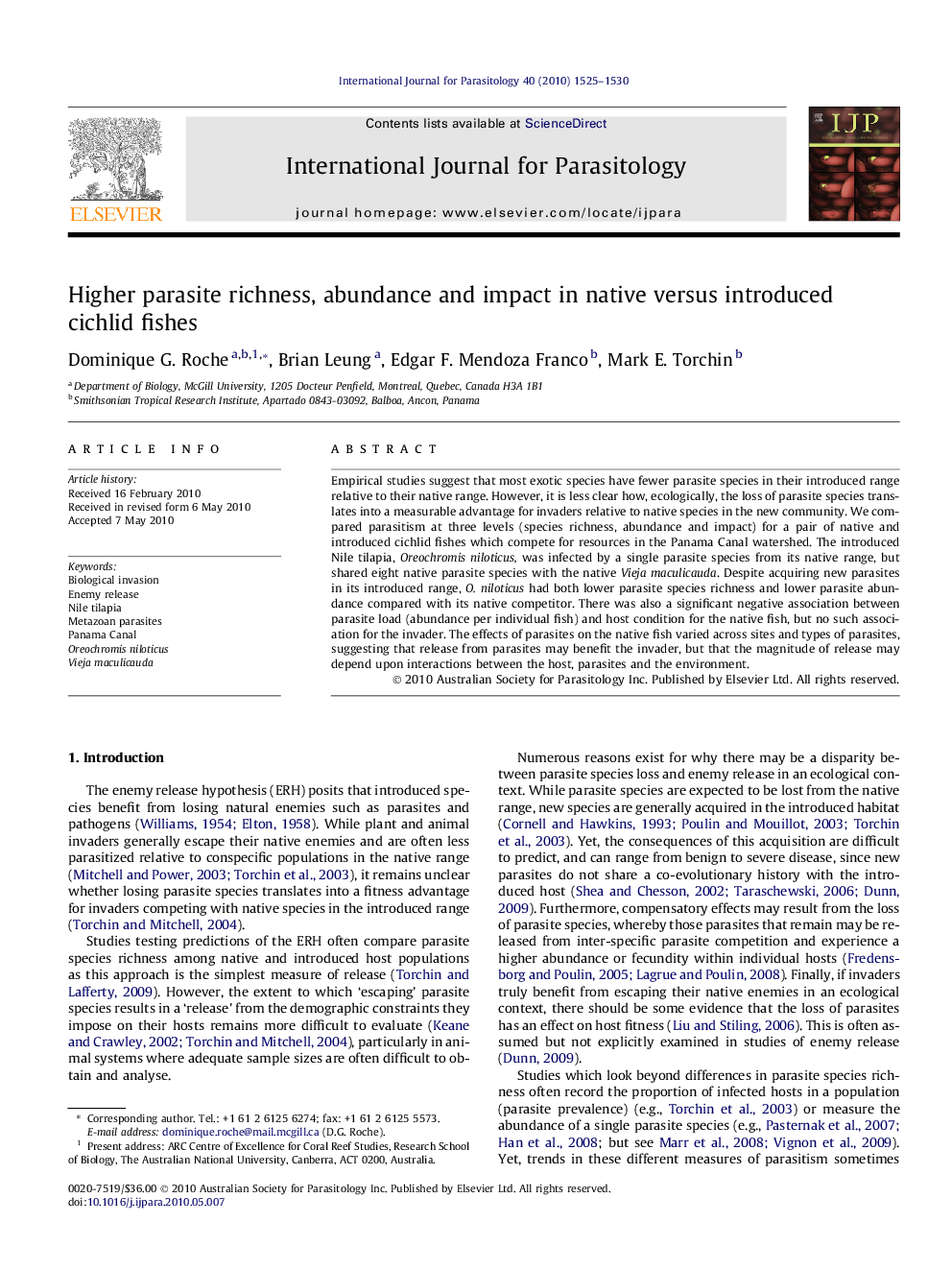| Article ID | Journal | Published Year | Pages | File Type |
|---|---|---|---|---|
| 2436340 | International Journal for Parasitology | 2010 | 6 Pages |
Empirical studies suggest that most exotic species have fewer parasite species in their introduced range relative to their native range. However, it is less clear how, ecologically, the loss of parasite species translates into a measurable advantage for invaders relative to native species in the new community. We compared parasitism at three levels (species richness, abundance and impact) for a pair of native and introduced cichlid fishes which compete for resources in the Panama Canal watershed. The introduced Nile tilapia, Oreochromis niloticus, was infected by a single parasite species from its native range, but shared eight native parasite species with the native Vieja maculicauda. Despite acquiring new parasites in its introduced range, O. niloticus had both lower parasite species richness and lower parasite abundance compared with its native competitor. There was also a significant negative association between parasite load (abundance per individual fish) and host condition for the native fish, but no such association for the invader. The effects of parasites on the native fish varied across sites and types of parasites, suggesting that release from parasites may benefit the invader, but that the magnitude of release may depend upon interactions between the host, parasites and the environment.
Graphical abstractFigure optionsDownload full-size imageDownload high-quality image (130 K)Download as PowerPoint slide
